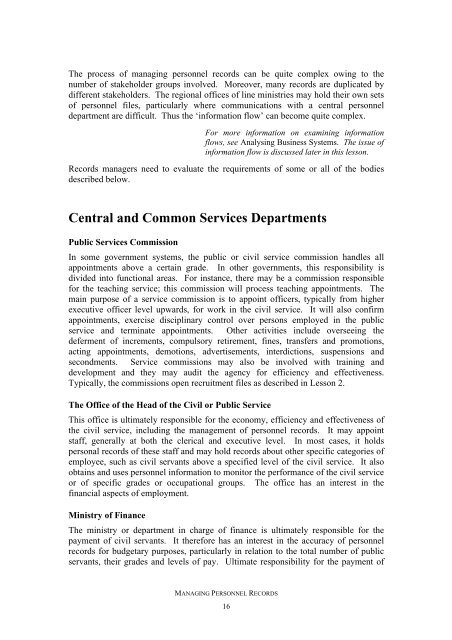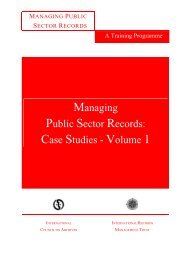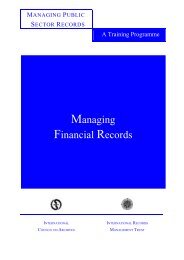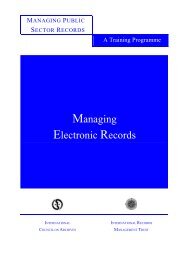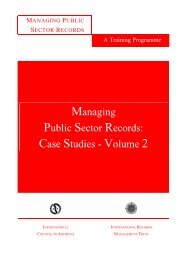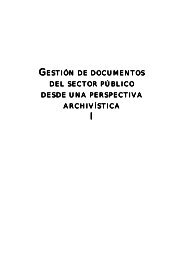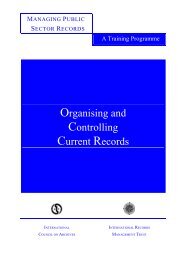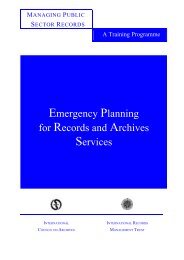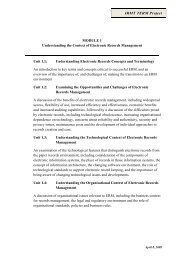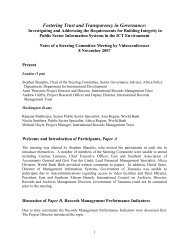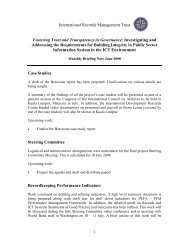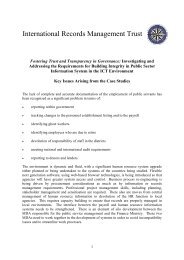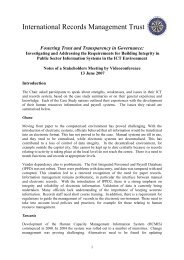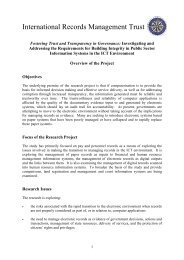Managing Personnel Records - International Records Management ...
Managing Personnel Records - International Records Management ...
Managing Personnel Records - International Records Management ...
You also want an ePaper? Increase the reach of your titles
YUMPU automatically turns print PDFs into web optimized ePapers that Google loves.
The process of managing personnel records can be quite complex owing to the<br />
number of stakeholder groups involved. Moreover, many records are duplicated by<br />
different stakeholders. The regional offices of line ministries may hold their own sets<br />
of personnel files, particularly where communications with a central personnel<br />
department are difficult. Thus the ‘information flow’ can become quite complex.<br />
For more information on examining information<br />
flows, see Analysing Business Systems. The issue of<br />
information flow is discussed later in this lesson.<br />
<strong>Records</strong> managers need to evaluate the requirements of some or all of the bodies<br />
described below.<br />
Central and Common Services Departments<br />
Public Services Commission<br />
In some government systems, the public or civil service commission handles all<br />
appointments above a certain grade. In other governments, this responsibility is<br />
divided into functional areas. For instance, there may be a commission responsible<br />
for the teaching service; this commission will process teaching appointments. The<br />
main purpose of a service commission is to appoint officers, typically from higher<br />
executive officer level upwards, for work in the civil service. It will also confirm<br />
appointments, exercise disciplinary control over persons employed in the public<br />
service and terminate appointments. Other activities include overseeing the<br />
deferment of increments, compulsory retirement, fines, transfers and promotions,<br />
acting appointments, demotions, advertisements, interdictions, suspensions and<br />
secondments. Service commissions may also be involved with training and<br />
development and they may audit the agency for efficiency and effectiveness.<br />
Typically, the commissions open recruitment files as described in Lesson 2.<br />
The Office of the Head of the Civil or Public Service<br />
This office is ultimately responsible for the economy, efficiency and effectiveness of<br />
the civil service, including the management of personnel records. It may appoint<br />
staff, generally at both the clerical and executive level. In most cases, it holds<br />
personal records of these staff and may hold records about other specific categories of<br />
employee, such as civil servants above a specified level of the civil service. It also<br />
obtains and uses personnel information to monitor the performance of the civil service<br />
or of specific grades or occupational groups. The office has an interest in the<br />
financial aspects of employment.<br />
Ministry of Finance<br />
The ministry or department in charge of finance is ultimately responsible for the<br />
payment of civil servants. It therefore has an interest in the accuracy of personnel<br />
records for budgetary purposes, particularly in relation to the total number of public<br />
servants, their grades and levels of pay. Ultimate responsibility for the payment of<br />
MANAGING PERSONNEL RECORDS<br />
16


